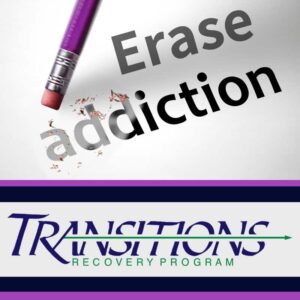We all want to help our loved ones if they’re stuck in a bad place. But how can you help them if you don’t know how to tell if someone is on drugs?
Addicts are excellent at hiding their substance abuse. Regardless of what drug they’re on, some tell-tale signs exist. Remaining observant will assist you in noticing the signs of an addiction.
 A person’s behavior changes as they progress further into his or her addiction. Just as with any other illness, without treatment, addiction festers and worsens over time. With this being the case, getting your loved one the treatment they need in a timely manner is essential.
A person’s behavior changes as they progress further into his or her addiction. Just as with any other illness, without treatment, addiction festers and worsens over time. With this being the case, getting your loved one the treatment they need in a timely manner is essential.
In the following article, we’ll discuss how to know if someone is on drugs. These signs aren’t always plain and simple to see, but knowing what to look for will ensure you have the best chance of knowing when your loved one is an addict.
If you think someone you love is on drugs and need to go over the treatment options, please contact us today by calling 1-800-626-1980.
Your call could save a life.
Physical Signs Of Drug Abuse
The good thing about physical signs of substance abuse is that these signs are difficult for an addict to hide. Be on the lookout for the following signs if you feel your loved one might be using drugs:
- Their sleeping habits change. This can include sleeping less or sleeping more.
- They have red or watery eyes, or their pupils are bigger or smaller than usual.
- Their speech is slurred, or they say things that don’t make sense or are difficult to understand.
- They lack coordination, typically stumbling or tripping as they walk.
- They have a cough that doesn’t seem to go away.
- They have tremors or shake parts of their body at times.
- They have a runny nose.
- Their physical hygiene is lacking.
- Their eating habits are changing, resulting in weight gain or weight loss.
- Their face is paler, more flush, or puffier than usual.
- They have odd odors on their breath, body, or clothing.
Behavioral Signs Of An Addiction
While some of the behavioral signs of substance abuse are easy to hide, an addict won’t always find it simple to hide every sign. Keep these common signs of addiction in mind as you analyze your loved one:
- Relationship troubles. Substance abuse generally results in conflict, so families, couples, work relationships, and friendships might suffer from the person’s addiction.
- Financial & legal troubles. Drug habits cost money, and they’re also can result in legal problems. Whether the person is overspending due to their addiction or they need to finance a run-in with the law, financial and legal troubles go hand-in-hand when it comes to addiction.
- Drop in success. Drug use can result in a lack of performance. School, work, and other aspects of one’s life can suffer as a result of substance abuse.
- Withdrawing from family, friends, and activities. Social interactions don’t always appeal to someone addicted to drugs. So it’s not uncommon of an addict to avoid activities they once loved and people who love them.
- Increase in risky behaviors. Drugs alter a person’s mind, and this can result in risky behavior. These behaviors can generally include driving under the influence, having unprotected sex, stealing, and others.
- Strange mood swings. Drug use can impact how a person thinks. Someone abusing substances can feel anxious or depressed sometimes and full of energy and euphoric without an obvious cause.
- Diminishing motivation and an altered mindset. A lack of interest is common among addicts. They can have trouble remembering things, thinking, and making decisions as well. These side-effects of substance abuse can result in difficulty accomplishing things too.
Tell-Tale Signs Someone Is On Drugs
If you know how to tell a loved one is on drugs by their eyes, you’ll find it easier to know when your loved one is using. But other signs persist. The following is a list of commonly abused drugs and some signs to look for when someone is abusing them:
-
- Cannabis. Someone high on cannabis might have red eyes, a glassy or blank stare, giggle uncontrollably at inappropriate times, lack control over the volume of their voice, have fluctuating weight, or lack motivation or interest in activities they usually enjoy.
- Opioids. This drug category includes heroin and a variety of prescription pain pills. Someone on opioids can have contracted pupils, excessively sleep, lose their appetite, coughing, sweating, twitches, sniffling, and vomiting. If the person is injecting heroin, they might have needle marks on their feet or arms as well.
- Depressants. These sedative drugs result in feelings of sleepiness and relaxation. Some people receive a prescription for sedatives to help in treating their anxiety or insomnia. Abusing these drugs generally results in poor coordination, sleepiness, slurred speech, difficulty concentration, flawed judgment, and signs comparable to drinking too much liquor.
- Stimulants. Someone using stimulants will experience an increase in central nervous system activity. These drugs include amphetamine, methamphetamine, cocaine, crystal meth, and crack. Users might experience an increase in energy, euphoria, decrease in appetite, weight loss, irritability, anxiety, alertness, and a lack of sleep. You might notice the individual acting rather hyper, cheerful, and talkative generally followed by sudden depression.
- Inhalants. Some addicts inhale household chemicals to achieve their high. Glues, paints, and aerosols can cause memory issues, runny nose, rashes around the nose or mouth, drowsiness, headaches, vision issues, nausea, changes in appetite, lack of control over muscles, and anxiety.
- Hallucinogens. LSD, mushrooms, PCP, angel dust, and peyote use cause hallucinations. Someone using these drugs might have dilated pupils, slurred speech, mood swings, paranoia, aggression, detachment, and confusion.
Need help finding the right addiction treatment in Florida? Help your loved one find the best transition of themselves with Transitions Recovery. If someone you love needs treatment, please contact our rehab in Florida today by calling 1-800-626-1980.

















